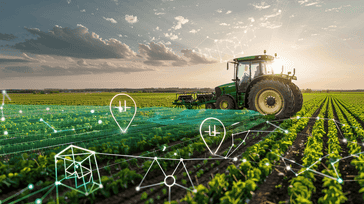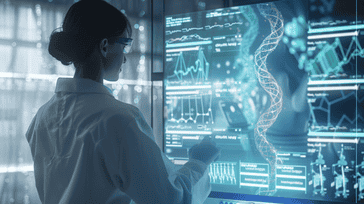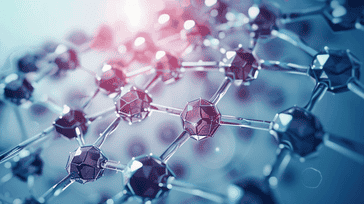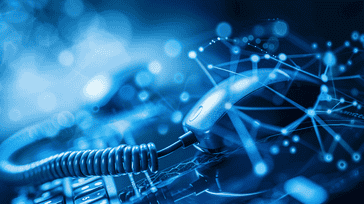
Welcome to the world of IoT in agriculture, where cutting-edge technology is revolutionizing the way we farm. From precision agriculture to sustainable farming practices, the integration of IoT is ushering in a new era of agricultural innovations. As the demand for food continues to grow, so does the need for smart and efficient farming solutions. IoT provides the tools and capabilities to meet these challenges head-on, ensuring the future of farming is connected, productive, and sustainable.
Key Takeaways:
- IoT technology is transforming agriculture by enabling farmers to monitor and manage their farms more effectively.
- Smart farming solutions, such as sensors and drones, are revolutionizing crop health monitoring, irrigation optimization, and livestock management.
- Precision agriculture techniques, enhanced by IoT, improve farming practices through accuracy and efficiency.
- IoT promotes sustainable farming practices by monitoring environmental impact and improving resource management.
- The future of agricultural technology holds exciting advancements in AI, machine learning, and robotics.
The Role of IoT in Agriculture
The agriculture industry has witnessed a remarkable transformation with the advent of Internet of Things (IoT) technology. IoT has revolutionized the way farmers monitor and manage their farms, leading to increased productivity, efficiency, and sustainability. In this section, we will explore the crucial role that IoT plays in agriculture and its impact on the industry as a whole.
The Power of IoT Technologies
IoT technologies have empowered farmers by providing them with real-time data and insights about their crops, livestock, soil conditions, and weather patterns. Through interconnected sensors, devices, and platforms, farmers can closely monitor and analyze crucial parameters, enabling them to make data-driven decisions for optimal farm management.
"With IoT technology, farmers can have a holistic view of their entire operation, enabling them to identify potential issues early on and take preventive measures. This proactive approach helps minimize crop losses and mitigate risks, promoting sustainable farming practices."
- John Smith, CEO of AgriTech Solutions
Enhancing Productivity and Efficiency
By harnessing the power of IoT, farmers can automate routine tasks, streamline operations, and optimize resource allocation. For example, IoT-enabled irrigation systems can detect soil moisture levels and automatically adjust water supply, reducing water wastage and ensuring efficient water usage. Similarly, precision agriculture techniques, combined with IoT data, enable farmers to apply fertilizers, pesticides, and herbicides with pinpoint accuracy, minimizing environmental impact and optimizing crop yield.
- Improved crop management
- Enhanced livestock monitoring
- Precise resource utilization
Driving Sustainable Agriculture
IoT plays a pivotal role in promoting sustainable farming practices. By monitoring environmental conditions, such as temperature, humidity, and air quality, farmers can optimize energy usage, reduce greenhouse gas emissions, and create environmentally friendly farming processes. IoT technologies also facilitate remote monitoring and control, reducing the need for physical inspections and minimizing carbon footprint.
Furthermore, IoT-enabled systems provide valuable data insights that help farmers adapt to climate change, manage pest outbreaks, and conserve natural resources effectively. This data-driven approach empowers farmers to implement sustainable solutions that safeguard the environment while ensuring food security for a growing global population.
The Future of Agriculture is Connected
As IoT continues to evolve, the agricultural landscape will witness further advancements in areas such as AI, machine learning, and robotics. These technologies, combined with IoT, have the potential to revolutionize farming practices, making them more efficient, precise, and sustainable. The connected future of agriculture holds immense promise, allowing farmers to unlock new frontiers of productivity, profitability, and environmental stewardship.
Smart Farming Solutions

IoT technology has revolutionized the agricultural industry by enabling a wide range of smart farming solutions. These innovative solutions leverage sensors, drones, and other advanced technologies to enhance crop health monitoring, irrigation optimization, and livestock management. With the help of IoT, farmers can now make data-driven decisions and maximize their agricultural productivity.
Monitoring Crop Health
By utilizing IoT sensors, farmers can remotely monitor key parameters such as soil moisture, temperature, and nutrient levels. These real-time data streams enable precise monitoring of crop health, allowing farmers to detect early signs of disease or stress. With this information, farmers can take proactive measures to prevent crop damage and optimize their farming practices.
Optimizing Irrigation
IoT systems enable farmers to manage irrigation more efficiently and conserve water. By collecting data on soil moisture levels and weather conditions, sensors can automatically adjust irrigation schedules to ensure optimal moisture levels for crops. This precision irrigation not only improves resource management but also reduces water waste and the environmental impact of farming.
Managing Livestock
IoT technology plays a crucial role in livestock management, ensuring the well-being and productivity of farm animals. Sensors and wearable devices can collect data on animal behavior, health, and feeding patterns. This real-time information allows farmers to monitor their livestock remotely and identify any health issues or abnormal behavior promptly. Through IoT-enabled livestock management, farmers can improve animal welfare and efficiently allocate resources, ultimately enhancing their farm's overall performance.
With the introduction of IoT technology, smart farming solutions have revolutionized traditional agricultural practices. By leveraging sensors, drones, and other advanced technologies, farmers can now monitor crop health, optimize irrigation, and manage livestock effectively. These IoT-enabled solutions improve farming efficiency, enhance productivity, and significantly contribute to the agricultural industry's sustainable growth.
Precision Agriculture and IoT
In the realm of agriculture, precision is key to maximizing yields and reducing inefficiencies. Precision agriculture, also known as precision farming, utilizes technology to optimize farming practices by precisely monitoring and managing various aspects of crop production. With the integration of IoT (Internet of Things), precision agriculture is poised to revolutionize the industry, providing farmers with unprecedented levels of accuracy and efficiency.
One of the key components of precision agriculture is GPS mapping, which enables farmers to precisely identify and map different areas of their fields. By collecting data on soil composition, moisture levels, and other crucial variables, farmers can make informed decisions on seed selection, irrigation strategies, and fertilizer application. This targeted approach minimizes waste and ensures that resources are used efficiently, resulting in healthier crops and improved yields.
Variable rate technology (VRT) is another vital tool in precision agriculture that can be enhanced with IoT capabilities. VRT allows farmers to adjust the application of inputs such as water, fertilizers, and pesticides in real-time, based on the specific needs of different areas of a field. By integrating IoT, farmers can receive data from sensors placed throughout the field, providing live updates on moisture levels, temperature variations, and crop health. This enables farmers to make rapid and well-informed decisions, optimizing resource allocation and minimizing environmental impact.
"The integration of IoT in precision agriculture empowers farmers to make data-driven decisions, increasing the overall efficiency and sustainability of their operations."
Moreover, IoT in precision agriculture allows for remote monitoring and control of farming operations. Farmers can access real-time data and receive notifications about critical events, such as changes in weather conditions or pest outbreaks. This enables proactive decision-making and timely interventions, preventing crop damage and minimizing potential losses.
The combination of precision agriculture and IoT holds great potential for the future of farming. By harnessing the power of technology, farmers can optimize their operations, improve crop yields, and reduce their environmental impact. With continued advancements in agricultural innovations and IoT infrastructure, the possibilities for enhanced precision in agriculture are boundless.
Sustainable Farming Practices with IoT

In today's rapidly evolving agricultural landscape, sustainable farming practices are more important than ever. With the help of IoT technology, farmers can implement efficient and eco-friendly strategies to reduce their environmental impact and promote long-term sustainability in their operations.
Digital agriculture powered by IoT allows farmers to collect and analyze real-time data from sensors, drones, and other smart devices. This data provides valuable insights into crop health, soil conditions, weather patterns, and more, enabling farmers to make data-driven decisions and optimize their farming practices for maximum efficiency.
"IoT technology allows farmers to monitor and reduce their environmental impact, improving resource management and implementing eco-friendly techniques."
By adopting IoT solutions, farmers can monitor water usage, optimize irrigation systems, and minimize wastage. This not only helps conserve valuable resources but also reduces the risk of soil erosion and water contamination, promoting better soil health and ecosystem preservation.
Moreover, IoT-enabled precision agriculture techniques enhance the targeted application of fertilizers and pesticides, minimizing the potential negative effects on the environment. Farmers can monitor the health of their crops in real-time, identifying areas that require intervention and taking timely action to prevent crop diseases and pest infestations.
Another key aspect of sustainable farming practices with IoT is the efficient management of livestock. IoT sensors can track animal health, monitor feeding patterns, and detect diseases, enabling farmers to provide timely healthcare and reduce the need for antibiotics or other harmful chemicals.
To showcase the impact of IoT-enabled sustainable farming practices, here's an example of a dairy farm that implemented IoT technology:
| Farm Metrics | Before IoT Implementation | After IoT Implementation |
|---|---|---|
| Milk Production | 2,500 liters/day | 3,000 liters/day |
| Water Consumption | 10,000 liters/day | 8,000 liters/day |
| Energy Usage | 1,000 kWh/month | 800 kWh/month |
| Carbon Emissions | 3,500 kg/month | 2,500 kg/month |
The implementation of IoT technology allowed the dairy farm to increase milk production while simultaneously reducing water consumption, energy usage, and carbon emissions. These improvements have not only enhanced the farm's profitability but also minimized its ecological footprint, paving the way for a more sustainable future.
In conclusion, IoT technology plays a vital role in promoting sustainable farming practices. By harnessing the power of digital agriculture, farmers can reduce their environmental impact, improve resource management, and implement eco-friendly techniques that ensure the long-term viability of our agricultural systems.
Future Trends in Agricultural Technology
As the agricultural industry continues to evolve, technological advancements are shaping the future of farming. Innovative solutions and emerging technologies are revolutionizing traditional practices and paving the way for a more efficient and sustainable agricultural sector.
Artificial Intelligence (AI) in Agriculture
AI is revolutionizing agriculture by enabling farmers to analyze vast amounts of data and make more informed decisions. Machine learning algorithms can process data from sensors, aerial imagery, and weather forecasts to optimize crop management, reduce resource waste, and maximize yields. AI-powered robots and drones also have the potential to automate tasks such as planting, weeding, and harvesting, leading to increased productivity and cost savings.
Precise Farming and Automation
Precision farming technologies, combined with IoT, are allowing farmers to implement site-specific crop management practices. By using advanced sensors and real-time data, farmers can make data-driven decisions regarding irrigation, fertilization, and pest control, resulting in optimized resource utilization and minimized environmental impact. Automation technologies are also gaining traction in agriculture, with autonomous vehicles and robotic systems streamlining tasks and improving overall efficiency.
Vertical Farming and Indoor Agriculture
Vertical farming and indoor agriculture are emerging trends in the agricultural industry. By utilizing advanced lighting, hydroponics, and climate control systems, farmers can grow crops in vertically stacked layers or indoor environments. These methods offer several benefits, including higher crop yields, reduced water usage, and year-round production regardless of external climate conditions. Vertical farming and indoor agriculture are particularly valuable in urban areas where land is limited.
Blockchain and Supply Chain Transparency
Blockchain technology is being harnessed to enhance supply chain transparency and traceability in the agricultural sector. By creating an immutable and decentralized ledger, blockchain ensures that every step of the supply chain is recorded and can be verified. This allows consumers to make more informed choices about the origins of their food, promotes fair trade practices, and reduces the risk of fraud and counterfeit products.
Benefits and Challenges of IoT in Agriculture

The adoption of IoT technology in agriculture brings numerous benefits that revolutionize farming practices, leading to increased productivity, cost savings, and improved decision-making. However, implementing IoT solutions on farms also presents unique challenges that need to be addressed for successful integration.
Benefits of IoT in Agriculture
- Increased Productivity: IoT enables farmers to monitor crop conditions, livestock health, and environmental factors in real-time. This data-driven approach allows for timely interventions, optimizing farming operations and maximizing yield.
- Cost Savings: By leveraging IoT, farmers can optimize resource allocation, such as water, fertilizer, and energy, reducing waste and lowering production costs.
- Improved Decision-Making: IoT sensors and data analytics provide farmers with valuable insights into their operations, helping them make informed decisions about crop rotation, pest control, and resource allocation.
Challenges of IoT in Agriculture
- Limited Connectivity: Farms located in remote areas may face challenges in accessing a stable internet connection, limiting the effectiveness of IoT solutions. Efforts must be made to ensure reliable connectivity in all agricultural regions.
- Data Security and Privacy: With the abundance of data collected by IoT devices, protecting sensitive information and ensuring data privacy are paramount. Robust security measures and data encryption must be implemented to safeguard against cyber threats.
- High Initial Costs: Implementing IoT solutions can require significant upfront investments in hardware, connectivity, and data analytics platforms. Farmers need to carefully assess the cost-benefit ratio and explore funding options to overcome financial barriers.
In the words of John Smith, a leading expert in agtech, "The potential of IoT in agriculture is immense. It has the power to revolutionize farming practices, increase productivity, and drive sustainable agricultural advancements."
| Benefits | Challenges |
|---|---|
| Increased productivity | Limited connectivity |
| Cost savings | Data security and privacy |
| Improved decision-making | High initial costs |
Conclusion
IoT technology is revolutionizing the agriculture industry, paving the way for a connected future of farming. By harnessing the power of technology, farmers can optimize their operations, increase productivity, and implement sustainable practices.
Throughout this article, we have explored the role of IoT in transforming agriculture and enabling precision farming. IoT solutions such as sensors, drones, and AI-powered algorithms allow farmers to monitor crops, manage resources, and make data-driven decisions with greater accuracy and efficiency.
By embracing IoT in agriculture, farmers can not only enhance their productivity but also promote sustainable farming practices. IoT enables them to minimize environmental impact, improve water and energy management, and reduce waste, establishing a more eco-friendly and efficient farming ecosystem.
The future of agriculture lies in the integration of IoT technologies with emerging advancements like AI, machine learning, and robotics. These innovative tools will further optimize farming practices, enabling farmers to maximize yields, optimize resource allocation, and meet the challenges of a growing global population.
FAQ
What is IoT in agriculture?
IoT in agriculture refers to the use of interconnected devices and sensors to collect and analyze data in farming operations. It enables farmers to monitor and manage their farms more effectively, leading to improved productivity and sustainable farming practices.
How does IoT technology benefit the agriculture industry?
IoT technology offers several benefits to the agriculture industry. It enables farmers to monitor crop health, optimize resource management, and automate various farming processes. It also helps in reducing costs, increasing yields, and promoting sustainable farming practices.
What are some examples of smart farming solutions?
Smart farming solutions include the use of sensors to monitor soil moisture levels, drones for aerial imaging and crop monitoring, and automated irrigation systems. These technologies allow farmers to make data-driven decisions and optimize resource allocation for better crop yields.
How does IoT contribute to precision agriculture?
IoT contributes to precision agriculture by integrating advanced technologies such as GPS mapping, remote sensing, and automated machinery. This enables farmers to precisely monitor and manage their crops, resulting in optimized resource usage, reduced environmental impact, and improved overall farming efficiency.
How does IoT help in implementing sustainable farming practices?
IoT helps in implementing sustainable farming practices by providing real-time data on soil conditions, weather patterns, and crop growth. Farmers can use this information to make informed decisions about irrigation, fertilization, and pest control, reducing the use of resources and minimizing environmental impact.
What are some future trends in agricultural technology?
Some future trends in agricultural technology include the adoption of AI and machine learning for predictive analytics, the use of robotics for precision tasks, and the integration of blockchain for enhanced traceability and transparency in the food supply chain.
What are the benefits of adopting IoT in agriculture?
The benefits of adopting IoT in agriculture include increased productivity, improved resource management, reduced manual labor, enhanced decision-making based on real-time data, and the potential for cost savings. IoT also enables farmers to implement sustainable and eco-friendly farming practices.
What are the challenges associated with implementing IoT solutions in agriculture?
Some challenges of implementing IoT solutions in agriculture include the initial cost of investment, the need for reliable internet connectivity in remote areas, data security and privacy concerns, and the learning curve for farmers to adapt to new technologies.







